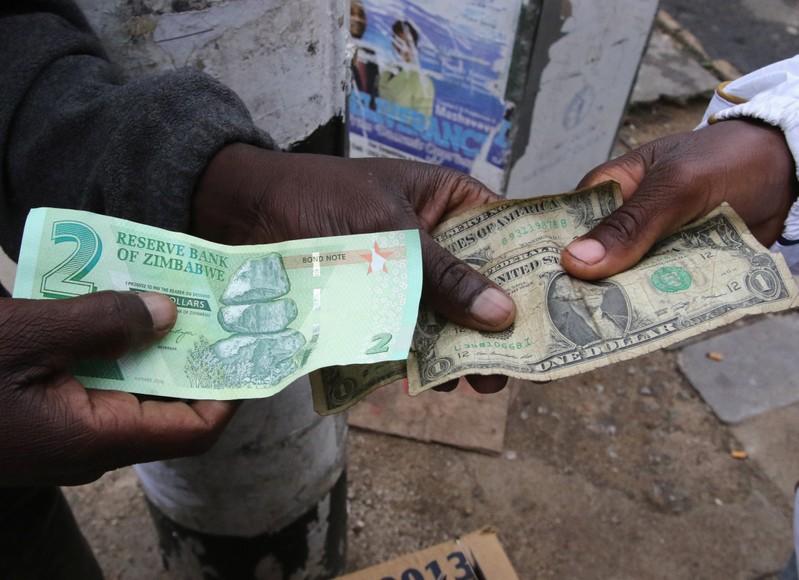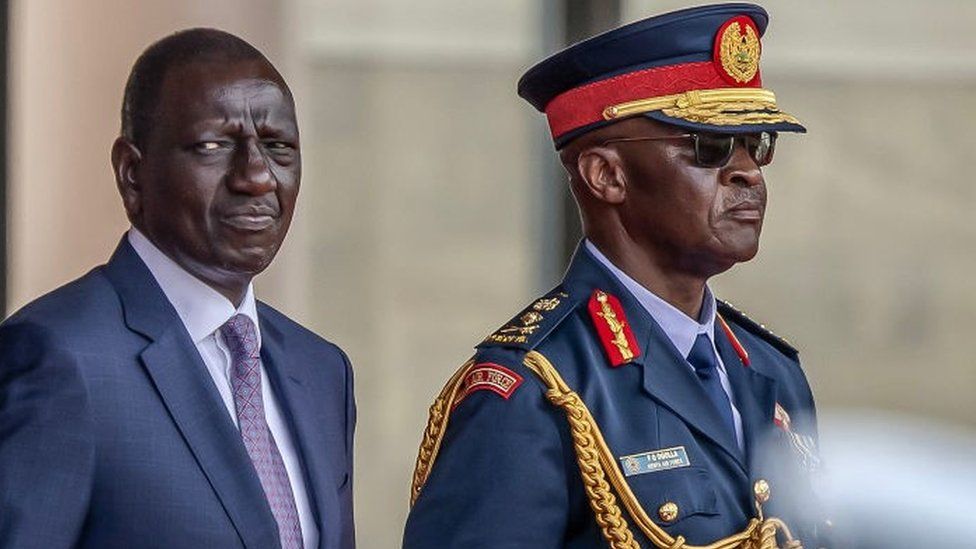BULAWAYO – President Emmerson Mnangagwa issued a raft of punitive measures Thursday targeting businesses that refuse to accept the Zimbabwe dollar and those that abuse foreign currency obtained from the central bank’s weekly auction.
The penalties, rolled out under a presidential decree, are contained in Statutory Instrument 127 which has since been published in the Government Gazette.
Under the new regulations, merchants who charge only in foreign currency or quote their prices above the official exchange rate will be liable to a Z$50,000 fine and can go to jail if they do not pay on time.
“A natural or legal person shall be guilty of a civil infringement if he or she, being a seller of goods or services not authorised by law to charge for them exclusively in foreign currency, refuses to allow any buyer thereof to tender payment for them in Zimbabwe dollars at the ruling exchange rate,” the Statutory Instrument says.
Those that offer “goods or services for sale at an exchange rate above the ruling exchange rate, or impose (for the predominant purpose of encouraging payment in a foreign currency) a premium on Zimbabwe dollar payments or allow a discount on foreign currency payments” shall also be in violation and liable to a fine.
The regulations also make it a punishable offence for businesses to issue receipts indicating payment in local currency while they would have charged in forex.
There is also a Z$1 million fixed penalty for those that use “foreign currency obtained directly or indirectly from a foreign exchange auction or an authorised dealer for a purpose other than that specified in the application to partake in the auction or in the application for foreign currency.”
Offenders in this regard could also be slapped with a fine equivalent to the value of the foreign currency they would have obtained, “whichever is the greater amount.”
Banks will also face a Z$5 million fine if it turns out that their clients falsified information in order to secure foreign currency from the auction system.
While most of the penalties are of a civil nature, criminal proceedings that may result in imprisonment may be initiated when the offender fails to settle their fine in three months.
“Upon the expiry of the 90-day period within which any civil penalty order of any category must be paid or complied with, the defaulter shall be guilty of an offence and liable to a fine not exceeding level six or to imprisonment for a period not exceeding one year or to both (in the case of a corporate defaulter, every one of its officers is liable to the penalty of imprisonment, and to the fine if the corporate defaulter fails to pay it),” the regulations say.
Mnangagwa’s decree was seen as a desperate measure designed to breathe some life into the worthless local currency, largely shunned by businesses who opt to trade using a basket of currencies, including the U.S. dollar, the South African Rand, and the Botswana Pula.
Former finance minister Tendai Biti blasted: “SI 127 of 2021 proves beyond doubt that this is the most deranged, most fascist, most clueless regime in the world. A full-blown kakistocratic state. This lot is an absolute threat to the well-being of Zimbabwe as a nation. You don’t run the economy by force or decree.”















